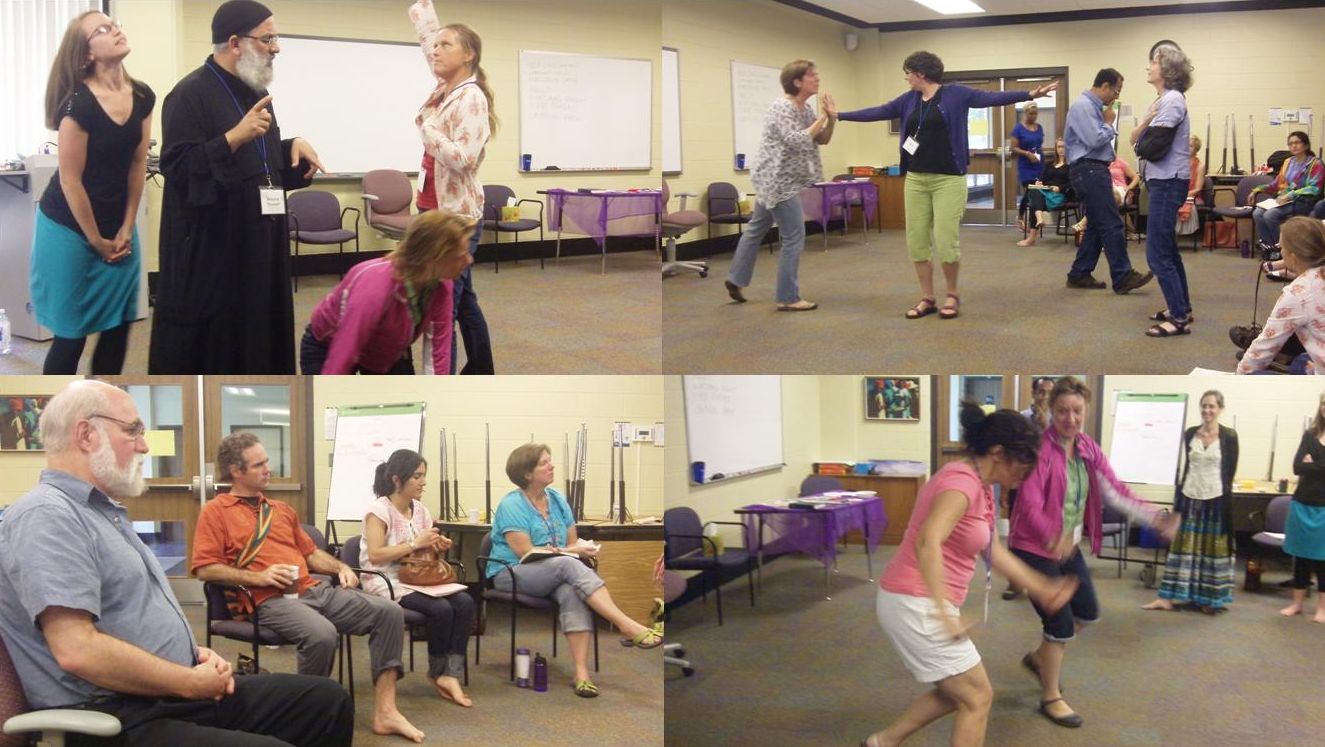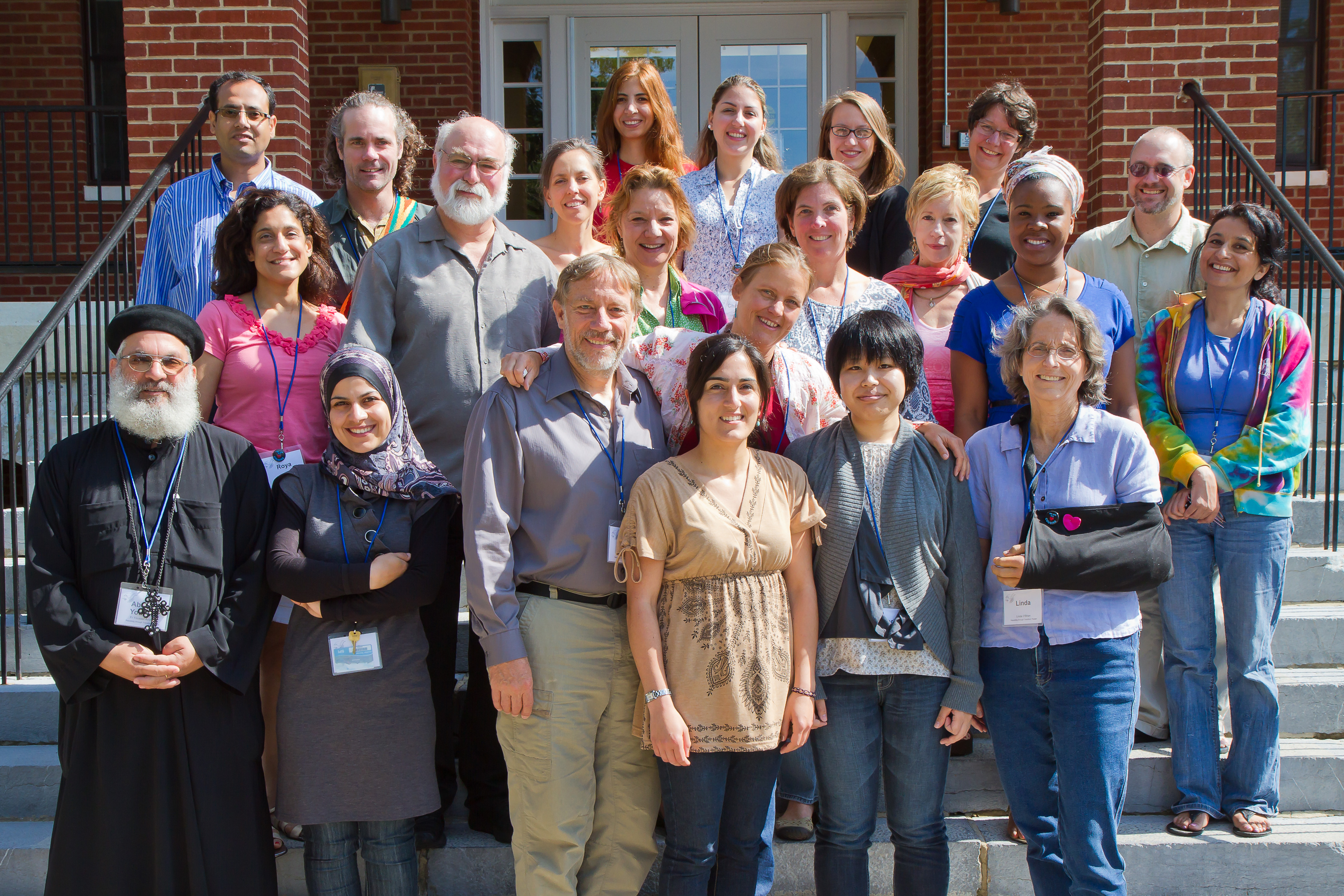BlogHealing Wounds of History through Transformative TheaterPosted June 19th, 2012 by Thomas Norman DeWolfI’ve been home from Virginia for a few days now. I continue to think about all that I experienced in the Summer Peacebuilding Institute class in which I participated at Eastern Mennonite University: Healing the Wounds of History: Peacebuilding through Transformative Theater.
Two key questions rest at the heart of the challenge for healing the wounds of history:
Volkas has worked for decades in bringing together such groups: descendants of Holocaust survivors and The Third Reich; Palestinians and Israelis; Japanese, Chinese and Koreans on their legacy of WWII; Armenians and Turks on the legacy of genocide; Tamil and Singhalese in the aftermath of the Sri Lankan Civil War; the factions involved in the Lebanese Civil War; and African Americans and European Americans on the legacy of slavery. Our week was almost completely an experiential one. There were no long lectures. We learned and practiced techniques that Armand utilizes in his work; techniques drawn from psychodrama, improvisation, Playback Theater, and others. Armand guided us through a wide variety of exercises and explained the theories behind the methods. The introductory exercises were fun and benign; designed to lead us into the spirit of the work. The exercises progressed toward digging deeper into complex feelings and deep wounds in need of healing. Always, it was understood that we could stop if things ever became too difficult or personal. The focus was on empathy, creating safe spaces for difficult work, and developing competence to apply these tools in an ethical way in our various peacebuilding contexts. We had a fascinating mix of cultures in our class, including participants from Lebanon, Japan, Liberia, Syria, and the United States. One member was Turkish, raised in Germany. Two were priests from Egypt; one a Presbyterian, the other an orthodox Coptic Christian. Several Americans were of mixed race. Such an eclectic mix brought both challenges and richness to our time together. It is healing work with African Americans and European Americans, of course, that drew my interest in the class. I was fascinated to learn that in Armand’s wide experience, the most challenging groups to work with, by far, are African Americans and European Americans. The terror and oppression has been inflicted for centuries. The trauma runs so deep. Over the course of the week I contemplated ways to apply these tools to working with those of us so deeply impacted by the legacy of slavery. I think first of the Coming to the Table community, with which I work so closely. We shared very deeply with each other throughout the week. I won’t share any details here, of course, which shall remain confidential within our group. This is one of the key aspects of this model: trust. Another is the capacity of empathy for healing. A third is respect for the power of personal stories to build bridges between people and cultures. Additionally, it is important to recognize that engaging in Tranformative Theater carries risk. There is potential for causing harm with these tools. They must be utilized with great care. I want to reiterate what I took away as the most important point: empathy is at the heart of this work. Being “seen” is the key to healing. The peacebuilding goal is to help participants ask “how can I empathize with someone and still hate them?” When we are able to recognize the “perpetrator” in each of us, empathy grows. I look forward to learning more. I’ve returned home with a great deal of reading to do. I’ve also returned home with a new group of friends who are committed to building peace around the world. We each have new, valuable tools to utilize in our work. Sharon Morgan and I first met each other at the Summer Peacebuilding Institute in June 2008. Our subsequent journey is rooted in our experiences that week and resulted in our commitment to travel a healing path together and document it. When our book tour begins in support of Gather at the Table in October, we’ll do our part in spreading the word about SPI all around the country. I hope many people will take the opportunity to register for classes, enhance their peacebuilding skills, and build relationships with dedicated allies around the United States and the world. |
Blog FunctionsCategories
Awards
Book Tour Books British Empire Children Civil War Eastern Mennonite University Endorsements Gavin genealogy Genealogy Grandchildren Harlem Book Fair Healing Movies Oklahoma history Olympics Peacebuilding Phillis Wheatley Book Award politics Post Racial Society Publicity Queen Elizabeth Race Race Relations Racism Reader Comments reconciliation Reviews Road Trip Slavery Summer Peacebuilding Institute The South Trauma Tulsa race riot Uncategorized World affairs Writing Most recent posts
Standing in Ferguson where Michael Brown died
Pull Back the Covers Working with Corporate America on Issues of Race Give Gather at the Table for the Holidays, SAVE $$$ & Support a Great Cause! Gather at the Table authors recite Gettysburg Address for PBS site Gather at the Table Paperback coming THIS WEEK! From a Reader: thoughts on Gather at the Table GREAT deal on the last of the Gather at the Table hardcovers from Beacon Press Gather at the Table called “brave and compelling” in new YES! Magazine review Gather at the Table is #1 Most recent comments |



